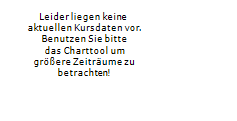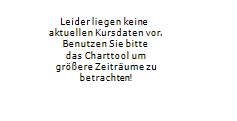
Mechanistic dose response observed at a 2mg/kg dose level based on urinary biomarker analyses
Encouraging exploratory results of imaging-based biomarkers with greatest reductions in total kidney volume seen in patients with the highest increases in PC1 and PC2
Cohort 3 fully enrolled with data readout anticipated in mid-2024; Cohort 4 screening to start in 2Q 2024
Company to hold conference call at 8:30am ET today
SAN DIEGO, March 12, 2024 /PRNewswire/ -- Regulus Therapeutics Inc. (Nasdaq: RGLS), a biopharmaceutical company focused on the discovery and development of innovative medicines targeting microRNAs (the "Company" or "Regulus"), today announced positive topline results from the second cohort of patients in its Phase 1b MAD study of RGLS8429 for the treatment of ADPKD.
The Phase 1b MAD study is a double-blind, placebo-controlled trial evaluating the safety, tolerability, pharmacokinetics and pharmacodynamics (PK/PD) of RGLS8429 in adult patients with ADPKD. The study is evaluating RGLS8429 treatment across three different weight-based dose levels, including measuring changes in urinary polycystins 1 and 2 (PC1 and PC2), height-adjusted total kidney volume (htTKV), cyst architecture, and overall kidney function. PC1 and PC2 are the protein products of the PKD1 and PKD2 genes and have been shown to inversely correlate with disease severity. The third cohort is being dosed at 3mg/kg of RGLS8429 or placebo every other week for three months. The Company recently added a fourth cohort for an open label fixed dose of 300mg of RGLS8429 dosed every other week for three months. Based on the results from this second cohort, the Company plans to amend the protocol to increase the sample size to up to 30 patients. In addition to PC1 and PC2 and safety, imaging biomarkers will also be evaluated.
In the second cohort, 14 patients were randomized 3:1 to receive either 2 mg/kg of RGLS8429 or placebo every other week for three months.
- RGLS8429 was well tolerated with no safety findings of concern.
- Clear evidence of a mechanistic dose response at a 2mg/kg dose level based on urinary PC1 and PC2 polycystin levels was observed.
- Urinary measurements of PC1 and PC2 demonstrated greater biological activity of RGLS8429 at 2mg/kg compared to 1mg/kg and placebo, which was most evident after 3 months of dosing.
- Exploratory results of imaging-based biomarkers were encouraging with 3 patients with the highest increases in PC1 and PC2 having reductions in htTKV>4%, with corresponding reductions in total kidney cyst volume (TKCV).
These data suggest potential impact on htTKV and TKCV, which the Company will further explore at higher doses in cohorts 3 and 4. The ongoing Phase 1b study is evaluating RGLS8429 dosing at 3 mg/kg in cohort 3 and will explore a 300 mg fixed dose in cohort 4 that will provide higher exposure in a larger number of patients based on anticipated body weight.
"These results from cohort 2 are encouraging, with biomarker data that demonstrate increased activity of RGLS8429 at 2 mg/kg," said Alan Yu, M.B., B.Chir, from the University of Kansas Medical Center. "Noting that several patients in this cohort who had the greatest reductions in kidney volume also had the greatest increases in PC1 and PC2 is certainly intriguing, and I look forward to seeing results from the higher doses planned in the study. As a physician managing patients with ADPKD, the continued development of a potential novel therapeutic is both important and welcome."
"We are pleased with the data we have seen in the second cohort, in particular, the mechanistic dose response, as it continues to validate RGLS8429's potential efficacy in ADPKD," said Preston Klassen, M.D., President and Head of Research & Development of Regulus. "Based on these exciting results from cohort 2, we plan to increase the sample size of the cohort 4 fixed-dose open label enrollment up to 30 patients in order to further examine potential impact on cystic volume in patients with APDKD. The clear increases in polycystin levels we saw in the second cohort were encouraging, in particular their potential correlation with improvements in kidney volume and function. We look forward to seeing the topline data from the third cohort in the middle of this year."
"These data represent another important step on our way to bringing a potential treatment to those living with ADPKD," said Jay Hagan, CEO of Regulus. "RGLS8429 holds the potential to be able to address the underlying genetic causes of the disease, and we look forward to the data from our third and fourth cohorts to inform our potentially pivotal Phase 2 trial design. As always, I would like to thank the patients and investigators participating in our past and ongoing studies as well as our team who has worked so hard to bring us these data."
In addition, the Company recently held a Type D meeting with FDA to discuss the accelerated approval pathway. The meeting was constructive and confirms the potential for an accelerated approval pathway based on a single Phase 2 study of RGLS8429 for the treatment of ADPKD.
As of December 31, 2023, the Company had cash and cash equivalents of approximately $23.8 million.
More information about the MAD clinical trial is available at clinicaltrials.gov (NCT05521191).
Conference Call Information
The Company will host a conference call and live audio webcast on March 12, 2024, at 8:30 am Eastern Time. To access the call, please dial (833) 816-1394 (domestic) or (855) 669-9657 (international). The live webcast can be found under "Events and Presentations" through the investor relations section of the Company's website. To access the telephone replay of the call, dial (877) 344-7529 (domestic) or (412) 317-0088 (international), passcode ID 6852735. The webcast and telephone replay will be archived on the Company's website at www.regulusrx.com following the call.
About ADPKD
Autosomal Dominant Polycystic Kidney Disease (ADPKD), caused by mutations in the PKD1 or PKD2 genes, is among the most common human monogenic disorders and a leading cause of end-stage renal disease. The disease is characterized by the development of multiple fluid filled cysts primarily in the kidneys, and to a lesser extent in the liver and other organs. Excessive kidney cyst cell proliferation, a central pathological feature, ultimately leads to end-stage renal disease in approximately 50% of ADPKD patients by age 60. Approximately 160,000 individuals are diagnosed with the disease in the United States alone, with an estimated global prevalence of 4 to 7 million.
About RGLS8429
RGLS8429 is a novel, next generation oligonucleotide for the treatment of ADPKD designed to inhibit miR-17 and to preferentially target the kidney. Administration of RGLS8429 has shown robust data in preclinical models, where clear improvements in kidney function, size, and other measures of disease severity have been demonstrated along with a superior pharmacologic profile in preclinical studies compared to Regulus' first-generation compound, RGLS4326. Regulus announced completion of the Phase 1 SAD study in September 2022. The Phase 1 SAD study demonstrated that RGLS8429 has a favorable safety and PK profile. RGLS8429 was well-tolerated with no serious adverse events reported and plasma exposure was approximately linear across the four doses tested and is similar to the PK data from the first-generation compound. In the Phase 1b MAD study Regulus announced both top line data from the first cohort of patients, and completion of enrollment for the second cohort of patients in September 2023. After review of all available safety data, Regulus has advanced to the third cohort where dosing has begun, and patients will receive 3 mg/kg of RGLS8429 or placebo every other week for three months. Regulus announced completion of enrollment in the third cohort in January 2024. Regulus announced top line data from the second cohort of patients in March 2024.
About Regulus
Regulus Therapeutics Inc. (Nasdaq: RGLS) is a biopharmaceutical company focused on the discovery and development of innovative medicines targeting microRNAs. Regulus has leveraged its oligonucleotide drug discovery and development expertise to develop a pipeline complemented by a rich intellectual property estate in the microRNA field. Regulus maintains its corporate headquarters in San Diego, CA.
Forward-Looking Statements
Statements contained in this presentation regarding matters that are not historical facts are "forward-looking statements" within the meaning of the Private Securities Litigation Reform Act of 1995, including statements associated with the Company's RGLS8429 program, the expected timing for initiating clinical studies, potentially achieving therapeutic efficacy and the potential to address the underlying genetic causes of ADPKD, the expected timing for reporting data, the timing and future occurrence of other preclinical and clinical activities, the potential accelerated approval pathway, and other statements relating to future events or conditions. Because such statements are subject to risks and uncertainties, actual results may differ materially from those expressed or implied by such forward-looking statements. Words such as "believes," "anticipates," "plans," "expects," "intends," "will," "goal," "potential" and similar expressions are intended to identify forward-looking statements. These forward-looking statements are based upon Regulus' current expectations and involve assumptions that may never materialize or may prove to be incorrect. Actual results and the timing of events could differ materially from those anticipated in such forward-looking statements as a result of various risks and uncertainties, which include, without limitation, the approach we are taking to discover and develop drugs is novel and may never lead to marketable products, preliminary or initial results may not be indicative of future results, preclinical and clinical studies may not be successful, risks related to regulatory review and approval, risks related to our reliance on third-party collaborators and other third parties, risks related to intellectual property, risks associated with the process of discovering, developing and commercializing drugs that are safe and effective for use as human therapeutics and in the endeavor of building a business around such drugs, our need for additional capital. These and other risks are described in additional detail in Regulus' filings with the Securities and Exchange Commission, including under the "Risk Factors" heading of Regulus' quarterly report on Form 10-Q for the quarter ended September 30, 2023. All forward-looking statements contained in this press release speak only as of the date on which they were made. Regulus undertakes no obligation to update such statements to reflect events that occur or circumstances that exist after the date on which they were made.
SOURCE Regulus Therapeutics Inc.




